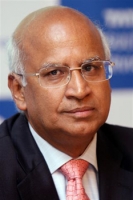More than any other innovation that has gone before it, the Internet has made it possible for smaller organisations to operate better and grow faster than ever, thanks to the direct customer channel and route to market that it creates.
But while SMEs depend upon the connected world to thrive and grow, many don't realise that their success depends not so much on the technology itself, but on the policies that have been put in place to enable online trade and ecommerce.
Year-round, representatives from the business community, civil society, academia, the Internet technical community and government, work to shape policy and best practices that keep the Internet open for business. This, in turn, advocates and protects the free flow of information, trade, and transactions across borders.
In this context, it's concerning that there isn't a greater representation of SMEs in the discussions that directly feed into the formation of Internet policy. Without this, the concerns of SMEs may not be addressed in the resulting policy at government levels - something which could be damaging to the future of small businesses everywhere.
Small business: large economic driver
Claims that SMEs form the backbone of the global economy and hold the key to beating the recession are far from exaggeration. In the UK alone, for example, SMBs formed 99.9 percent of all private sector businesses at the start of 2012, and accounted for almost half of all private sector employment. But 85 percent of small businesses in the UK recognise that technology is a major driver for their growth, with the Internet itself being perhaps the greatest enabler of all.
As such, to raise and progress their own unique needs, it is key for small business interests to be at the heart of Internet policy discussion, to help support policies that promote innovation and entrepreneurship, encourage competition, demand an open market, and eliminate barriers to trade and investment.
The importance of inclusive policy-making
To protect and preserve the economic and social opportunity made possible by investment in the Internet, it's crucial that the debate about Internet governance be transparent and open to all. SMEs have a right - and a duty - to be part of this debate in the same way that large enterprise, government, civil society, academia and the Internet technical community are already represented.
And this is why, in my opening address at last week's WSIS action lines Forum (World Summit on the Information Society, action lines Forum) in Geneva, I highlighted the urgency for achieving greater business participation in Internet policy debate and outlined why it's key that we see a greater representation of the SME community in particular, given its unique and crucial role in today's economic landscape.
As innovators and primary Internet uses, businesses must continue to play an integral role in shaping the Internet. The voice of business as a whole should be heard in policy-making discussions, at national, regional and global levels, not least because the consequences of failing to speak out could mean that changes to the way the Internet is governed could begin to work against the interests of all business in the long-term.
How to get involved
As a member of the International Chamber of Commerce initiative ICC BASIS, I work closely with the global business community from across all sectors. ICC BASIS was established to represent and serve as the voice of our business members in the global dialogue which feeds into Internet policy creation at national level.
We engage actively in policy advocacy on topical issues of concern to our members and our links with major intergovernmental organisations, including the United Nations, allow us to effectively represent the interests of members in intergovernmental and multistakeholder fora.
Our membership today represents some of the largest enterprises in the world but smaller organisations are increasingly seeing the value in working with like-minded business representatives from all over the world on global issues of mutual interest. A proportion of BASIS members today is composed of small and micro businesses - one-person consulting firms, for example, and companies and associations which protect small business innovation.
We need the participation of these SMEs to provide the small business viewpoint, to bring diverse perspectives to the table and to talk about what matters to them. This is the best way to achieve a culture of ‘informed policy choices' which will ultimately help small business to pursue and achieve its objectives.
Now more than ever, as the Internet goes through some turbulent times, is the moment for SMEs to speak up and be heard.
Mr. S. Ramadorai, Chair of the International Chamber of Commerce BASIS initiative, Business Action to Support the Information Society, and Vice Chairman, Tata Consultancy Services






